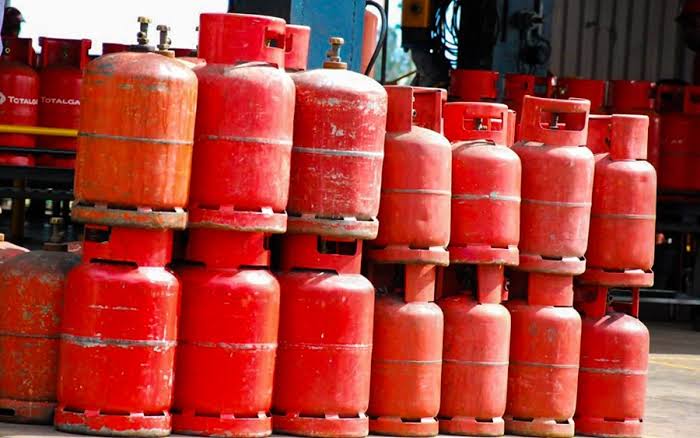Cameroon’s Deforestation Policy Spiking Local Gas Consumption

Cameroon, the central African country, noted for its rich ecological diversity is also troubled by the activities of big timber trading companies. They connive with highly placed officials in government to bleed the rich forestry heritage of the country.
A recent change of mind in official circles have however resulted in a communication campaign to significantly de-accelerate the local people’s hunger for the use of logs and firewood for domestic cooking.
This has led to an explosion in the use of cooking gas thereby exposing a massive shortage in gas bottles available for local use. Estimates by gas stations and wholesale distributors in Cameroon put the shortfall at a minimum of 500,000 gas bottles to meet domestic demand.
The increase in the number of gas users alone does not account for the shortfall in the availability of gas bottles.
“Over 70 per cent of the bottles that arrive at our stations for refilling are in very bad shape and most times, we retain them for fear that if they are returned to their owners, they may cause accidents at homes,” says Fabien Mvondo Nty, Chief of Cabinet at Société Camerounaise de Depot Pétrolier (SCDP), Cameroon’s main gas supplier.
“Most times when we retain these bottles, we try to repair some and return them into circulation.
“If we do not do that, there would be a serious shortage of bottles and consequently the non-availability of gas for domestic use,” Mvondo Nty adds.
The shortage of gas bottles in the local market has led to a sharp increase in their prices.
The homologated price of an empty gas bottle, according to the Caisse de Stabilisation des Prix des Hydrocarbures (CSPH) (Hydrocarbons Price Stabilisation Fund) is 18,000FCFA (about 35 dollars).
But due to the shortage in supplies, gas bottle prices have doubled to 35,000FCFA (about 70 dollars) when they are available.
In some parts of the country, empty gas bottles can cost up to 50,000FCFA (about 100 dollars) in the black market.
The disregard of the homologated price is not only in the black market and by roadside sellers. Even gas stations owned by multi-nationals, such as Oilibya and Total, sell above the officially homologated price.
Officials at Camgaz insist they have to sell above the homologated price because of the cost at which they import the gas bottles they sell.
Camgaz’s Director of Distribution reveals that they import between 10,000 and 15,000 bottles annually from Amtrol-Alfa in Portugal and from China.
“After paying the various taxes and transportation, a bottle of gas arrives at our depot at 25,000 FCFA (about 50 dollars).
“How does one sell something he bought at 50 dollars for 35 dollars as government wants us to do? That would be suicidal to our business”, the Camgaz official said.
But why import bottles when they can be made locally?
One of the gas distribution companies, SCTM (Société camerounaise de transformation métallique) (Cameroon Metal Transformation Company), set up a gas bottle manufacturing company in Douala some years back but it was forced to close down because of the rising cost of imported raw materials and local taxes.
“Government’s forest conservation efforts must be accompanied by tax incentives in the sectors that if developed can wean wood consumers from exploiting our forests.
“And encouraging the use of gas is one very effective way of curtailing forest degradation and encouraging reforestation,” says forestry engineer Oben Elizabeth.
“If government had given us some tax incentives by say reducing or completely abolishing excise duty on the imported raw materials we used and also giving us local tax breaks, we should have continued manufacturing gas bottles here thus saving the national treasury millions by way of the foreign reserves currently involved in importing the gas bottles,” the SCTM official said.
Support Our Journalism
There are millions of ordinary people affected by conflict in Africa whose stories are missing in the mainstream media. HumAngle is determined to tell those challenging and under-reported stories, hoping that the people impacted by these conflicts will find the safety and security they deserve.
To ensure that we continue to provide public service coverage, we have a small favour to ask you. We want you to be part of our journalistic endeavour by contributing a token to us.
Your donation will further promote a robust, free, and independent media.
Donate HereStay Closer To The Stories That Matter




